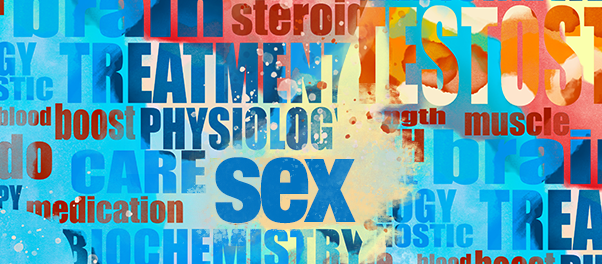- Breaking Barriers: Access and Early Intervention
- Integration with Criminal Justice
- Holistic Mind-Body Approach
- Coping Strategies for Resilience
- Promote Positive Relationships
- Foster Hope and Resilience
- Promote Self-Efficacy and Self-Actualization
- Promote Self-Care
- Cultivate Positive Psychology Traits
- Therapies that Cultivate Positive Emotions
- Embrace Person-Centered Attitudes and Behaviors
- Conclusion
- Additional Resources
Breaking Barriers: Access and Early Intervention
Integration with Criminal Justice
Integrated Behavioral Health Care (IBHC) doesn't just intersect with primary care and community wellness–it extends its transformative impact into the criminal justice system. Recognizing that many individuals in the criminal justice system may have underlying mental health and substance use issues, IBHC offers a nuanced approach beyond mere punishment. By collaborating with legal professionals, mental health experts, and community organizations, IBHC facilitates specialized programs such as Drug Courts, Mental Health Courts, or reentry initiatives.
For instance, Drug Courts may mandate substance abuse treatment and regular monitoring instead of incarceration, focusing on rehabilitation and support. Another example is the Risk-Need-Responsivity (RNR) model, often used in correctional rehabilitation, which aligns treatment to an individual's risk of reoffending and specific needs, emphasizing personal responsivity and evidence-based interventions. Such innovative approaches reduce recidivism and foster reintegration and recovery, transforming lives and promoting a more compassionate and effective criminal justice system.
Holistic Mind-Body Approach
A fundamental tenet of IBHC is its recognition of the intricate relationship between mental and physical health. Embracing a holistic view, it acknowledges that an individual’s mental well-being is intertwined with various life domains and delves beyond the surface, addressing the root causes rather than symptoms. A recent study used 15 years (2002-2016) of data across three exposure windows to assess the relative mental health effects of different exposure patterns to housing affordability problems. Findings demonstrated that individuals with prolonged exposure to stress from unaffordable housing had the lowest scores (mean = 45) on a self-reported health measure, and the unexposed group had the highest mental health scores (mean = 49.4), indicating better mental health. The data revealed that unaffordable housing generally leads to declining mental health across various population characteristics. Private renters with prolonged exposure to unaffordable housing had extremely low mental health scores that may be clinically significant in diagnosing depression. Of note, even intermittent exposure showed a negative impact.
By ensuring that basic needs such as stable housing, education, healthcare, and vocational training are met, IBHC strengthens the foundation for emotional recovery, affirming that a resilient mind thrives within an environment where essential needs are fulfilled.
Coping Strategies for Resilience
Life often presents challenges that test emotional resilience. IBHC empowers individuals by imparting effective coping strategies encompassing cognitive and behavioral approaches, equipping individuals to manage external stressors and internal turmoil. These strategies include mindfulness practices to enhance present-moment awareness, cognitive restructuring to challenge and modify automatic irrational or negative thoughts, stress-reduction techniques such as deep breathing or progressive muscle relaxation, developing time-management skills to reduce daily pressures, creating and utilizing a social support network, and engaging in hobbies that promote well-being and satisfaction.
Through collaboration with mental health professionals, individuals learn to embrace adversity with confidence and emotional stability and develop resilience that carries them through life’s ups and downs.Promote Positive Relationships
Foster Hope and Resilience
Hope is a powerful force that sustains us through challenging times. Cultivating hope involves nurturing a positive outlook, setting realistic goals, and believing in our ability to overcome obstacles. Moreover, enhancing resilience allows us to bounce back from setbacks, learn from adversity, and emerge stronger and wiser.
IBHC can offer interventions to cultivate hope and resilience. Some of these interventions can be:
- Individual and group therapy to personalize approaches and facilitate peer support
- Mindfulness and meditation practices to promote present-moment awareness
- Family engagement to foster a supportive environment
- Vocational and educational support to build self-esteem and confidence
- Skill-building in areas like problem-solving, coping with adversity, maintaining positive relationships, and setting realistic goals
- Positive reinforcement and strength-based approaches to focus on strengths and achievements to boost self-esteem and cultivate a positive outlook
- Holistic wellness programs to encourage activities like art therapy, physical exercise, or engaging with nature
Through collaboration between mental health professionals and primary care providers, a multidisciplinary approach can provide comprehensive support, equipping individuals with the tools needed to navigate challenges and maintain a positive outlook.
Promote Self-Efficacy and Self-Actualization
Belief in one’s capabilities forms the cornerstone of emotional well-being. IBHC empowers individuals by fostering self-efficacy, allowing them to recognize their strengths and accomplishments while challenging self-doubt. Self-actualization is guided by therapies such as motivational interviewing, a powerful tool that unlocks an individual's motivations and strengths. For those navigating the complexities of chronic illness, IBHC provides a guiding light, enabling them to explore their potential, achieve milestones, and embrace a profound sense of competence and achievement.
Promote Self-Care
Cultivate Positive Psychology Traits
Therapies that Cultivate Positive Emotions
Embrace Person-Centered Attitudes and Behaviors
Adopting person-centered attitudes and behaviors is essential in promoting emotional well-being. Demonstrating empathy, warmth, and the ability to adapt to individual differences fosters a sense of acceptance and validation, promoting emotional growth and openness in others.
IBHC aligns with person-centered principles, offering a comprehensive understanding of an individual’s needs by connecting mental, physical, and emotional well-being. Collaborative treatment planning ensures that care is tailored to each person's unique experiences, promoting emotional growth and enhancing the sense of acceptance and validation.Conclusion
Additional Resources
Trainings:
Emerging from the Pandemic: The Ongoing Importance of Counselor Self-Care
Evidence-based psychotherapy with LGBTQ+ populations: A framework for clinical practice
Podcasts:
Self-Care, Burnout, and the Way Forward – One Counselor’s Inspiring Story with Jessica Smith
Advancing Despite Adversity: Resilience Through the Lens of Neuroscience
Blog Posts and Research:
Reasons to Practice Self-Care as a Mental Health Professional






















